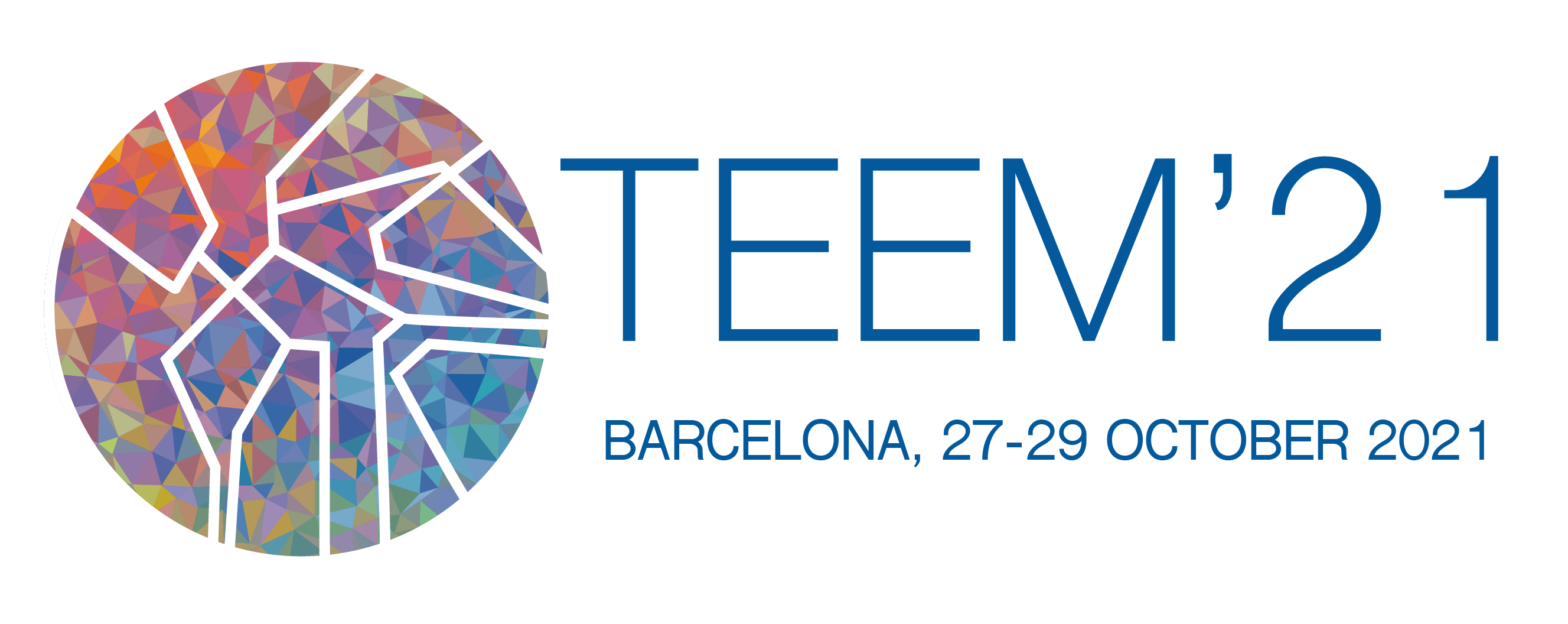Presentation
Last editions of the learning analytics track, one of the conclusions of the track was that variety (of topics, techniques, data sources, contexts, users) was necessary for the field to expand and advance, at the peril of a fragmentation that now seems inevitable.
The fragmented landscape of learning analytics has its own perks, though. Nearly eight years after the first Learning Analytics and Knowledge Conference, we have now a clearer view of all the different aspects, technologies, algorithms and scope of application of learning analytics. In a sense, we are now witnessing the end of the beginning of learning analytics.
This eight edition of the track aims to embrace variety and invites researchers across the world to original submissions that evaluate the role of learning analytics from educational, social and technical perspectives, with a critical view. As in previous years, we look forward to receiving valuable contributions that reconcile educational and technical approaches, but we welcome both quantitative and qualitative work that reflect a broad range of applications of learning analytics across different instructional contexts.
Submissions should present advances in theory and/or apply novel techniques for data collection, processing and visualization in learning analytics. Submissions covering ethical aspects and policy-making in learning analytics are also welcome. All submissions will be subject to peer-review.
Topics
- Educational research and learning analytics.
- Learning analytics and instructional design.
- Competence-based learning analytics.
- Learning analytics and self-regulated learning.
- Interoperability and standards for learning analytics.
- Learning analytics in team-based education.
- Mobile learning analytics. Multimodal learning analytics.
- Learning analytics in virtual worlds.
- Discourse and sentiment analytics.
- Academic analytics.
- Data sources for learning analytics.
- New approaches and methods in learning analytics.
- Learning analytics for personal learning environments (PLEs)
- Success stories and case studies.
- Theoretical advances in learning analytics.
- Replication and cross-validation of existing research.
- Ethical aspects of learning analytics.
- Learning analytics and policy-making.
Track Instructions and Program (Friday 29th, F2F-Hybrid, 9.00-10.30, local time, SALA DE GRAUS, floor 1)
As the beginning of the TEEM 2021 Conference is approaching, please bear in mind some aspects about the presentation format of “Track 13. Learning Analytics: Moving on?”, in which you will be participating and which may differ from previous conferences you may have attended:
- English will be the language used in this session.
- The session will be held as a panel consisting of several presenters, and moderated by the co-chairs.
- Authors will briefly present an overview of their submission, with a maximum time allowance of FIVE MINUTES (no exceptions made).
- The presentation shall not be a summary of the submission but rather a general presentation of the context of your research that will open themes for discussion.
- Following the presentations, the moderators will start a debate with all the authors, addressing the main contributions of each paper and focusing on common and divergent points.
- The debate will have a duration of between forty-five and sixty minutes, and may include active participation from the audience in an open round of questions.
We are looking forward to seeing you in Barcelona. Please we need to know if any of you is going to participate online.
The order of the presentations will be:
- ID 69: Learning Analytics Icons for analytics’ transparency, information, and easy comprehension of data treatment of students
- ID 78: Prediction systems for education
- ID 134: A model to characterize exercises using probabilistic methods
- ID 119: Data analytics to predict dropout in a MOOC course on energy sustainability
Track Scientific Committee
Miguel Ángel Conde-González (Universidad de León, Spain) – Char
Ángel Hernández-García (Universidad Politécnica de Madrid, Spain) – Chair
Julián Chaparro-Peláez (Universidad Politécnica de Madrid, Spain)
Javier Alfonso-Cendón (Universidad de León, Spain)
Gustavo Ribeiro Alves (Instituto Superior de Engenharia do Porto, Portugal)
Manuel Caeiro-Rodríguez (Universidade de Vigo, Spain)
Agustín Carlos Caminero-Herráez (Universidad Nacional de Educación a Distancia, Spain)
Adam Cooper (University of Bolton, United Kingdom)
Juan Cruz-Benito (IBM Research, USA)
Rebecca Ferguson (The Open University, United Kingdom)
Camino Fernández-Llamas (Universidad de León, Spain)
Baltasar Fernández-Manjón (Universidad Complutense de Madrid, Spain)
Ángel Fidalgo-Blanco (Universidad Politécnica de Madrid, Spain)
Antonio Fumero-Reverón (Universidad Politécnica de Madrid, Spain)
Francisco José García-Peñalvo (Universidad de Salamanca, Spain)
Dragan Gasevic (Athabasca University, Canada)
Inés González-González (Universidad Pública de Navarra, Spain)
David Griffiths (University of Bolton, United Kingdom)
Mariluz Guenaga (Universidad de Deusto, Spain)
Santiago Iglesias-Pradas (Universidad Politécnica de Madrid, Spain)
Ana Isabel Jiménez-Zarco (Universitat Oberta de Catalunya, Spain)
Mikel Larrañaga (Euskal Herriko Unibertsitatea, Spain)
María Arcelina Marques (Instituto Superior de Engenharia do Porto, Portugal)
Emiliano Acquila-Natale (Universidad Politécnica de Madrid, Spain)
Alejandra Martínez-Monés (Universidad de Valladolid, Spain)
Vicente Matellán-Olivera (Universidad de León, Spain)
Milos Milovanovic (Univerzitet u Beogradu, Serbia)
Julià Minguillón (Universitat Oberta de Catalunya, Spain)
Miroslav Minovic (Univerzitet u Beogradu, Serbia)
Amílcar Oliveira (Universidade Aberta, Portugal)
Pedro José Muñoz-Merino (Universidad Carlos III, Spain)
Nic Nistor (Ludwig Maximilians Universität München, Germany)
Luis Panizo-Alonso (Universidad de León, Spain)
Abelardo Pardo (The University of Sydney, Australia)
Rafael Pastor (Universidad Nacional de Educación a Distancia, Spain)
Antonio Robles-Gómez (Universidad Nacional de Educación a Distancia, Spain)
Salvador Ros-Muñoz (Universidad Nacional de Educación a Distancia, Spain)
Teresa Sancho (Universitat Oberta de Catalunya, Spain)
Marcus Specht (Open Universiteit Nederland, Netherlands)
Roberto Therón (Universidad de Salamanca, Spain)
Katrien Verbert (Katholieke Universiteit Leuven, Belgium)
